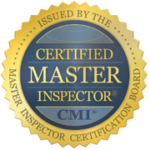Frequently Asked Questions
Buying or selling a home can be a stressful experience, but I’m here to ensure you know what to expect during your home inspection.
A home inspection is a visual, limited, non-invasive, objective assessment of a homes current condition at the time of the inspection. On average, a single-family home inspection usually takes 2-4 hours to complete, though this is heavily dependent on the home’s size and condition.
The standard home inspector’s report will cover the condition of the home’s heating system; central air conditioning system (temperature permitting); interior plumbing system; electrical system; the roof, attic, and visible insulation; walls, ceilings, floors, windows and doors; and the foundation, basement and structural components. Tennessee publishes a Standards of Practice and Code of Ethics outlining what to expect in the home inspection report.
It is important to note that there may be some exceptions. If certain areas are inaccessible (locked door, tenant’s belongings in the way) or unsafe conditions (severely steep roofs, poor structural integrity), the inspector will explain the situation and note that they could not assess that specific area or system.
Buying a home is a significant investment and might be the largest one a homebuyer ever makes. It’s recommended that homebuyers gain as much knowledge as possible about the property before purchasing it. A thorough home inspection can reveal any significant repairs needed, potential oversights by the builder, or general maintenance required to keep the property in good condition. By going through the inspection process, homebuyers can better understand the property they are considering and confidently make informed decisions. Additionally, if a homeowner plans to sell their property, a home inspection can identify any repairs needed to improve the home’s selling condition.
Although the homebuyer doesn’t need to be present during the home inspection, it is highly recommended. Many homebuyers find it to be a valuable and worthwhile experience. Being present during the inspection allows the homebuyer to observe the inspector’s findings and ask questions as they arise. Interacting with the inspector during the inspection can provide homebuyers with invaluable information to help them make informed decisions about their investment.
A professional home inspection is an examination and objective assessment of the current condition of a house. A home inspector will not pass or fail a house but rather describe its physical condition and indicate what components and systems may need major repair or replacement. A home inspection is not an appraisal and will not determine the home’s market value. It is also not a municipal inspection and does not verify local code compliance.
BEFORE THE INSPECTION
- SIGN the Inspection Agreement
- PAY for the Inspection and/or Services
- RECEIVE email reminder notification 1 day prior to inspection
FOR VACANT HOMES
I recommend confirming with your realtor that the utilities are on (water, power, gas), and checking to ensure that all shut-off valves and/or breakers are in the on position. My insurance company does not allow me to activate or shut down any items or appliances for liability issues.
FOR OCCUPIED HOMES
I recommend consulting with your realtor and/or the seller(s) to ensure that any personal belongings and bulky items are removed from areas surrounding major appliances like HVAC and water heaters, attic accesses, crawl space accesses, electrical panels, etc. If access is restricted and/or not visible due to personal items, the inspection is limited to what is visible and accessible at the time of the inspection. Items will not be moved to gain access.
DURING THE INSPECTION
DISCUSSIONS, QUESTIONS, AND SAFETY MEASURES
You are encouraged to attend the inspection for a recap on the deficiencies found with the home. I just ask that you please save questions for the end of the inspection as I have a systematic routine that is applied to every home to ensure I can look over everything thoroughly.
VISIBLE FUNGAL GROWTH
If visible fungal growth (possible mold) is found during the inspection, I can take surface samples of the growth and send them to the lab for expert analysis. Surface sampling is $100 for the first sample, and $70 for each additional sample. Results usually available within 24-48 hours.
INDOOR AIR QUALITY TESTING
If a musty smell is present in the home or moisture intrusion (typically from rain leaks or plumbing leaks) is found, indoor air quality testing can be conducted. These services cost $275 and will be accompanied by an additional agreement and report.
AFTER YOUR INSPECTION
INSPECTION REPORT
The inspection report will contain a lot of information and typically consists of 35 – 70 pages and a lot of photos and diagrams. I provide this much information, not to overwhelm you, but provide you as much information about your potential home that I possibly can. It is not uncommon for me to find 30 or more defects with a home so do not despair if you get a long report because this is normal.
COMMUNICATION & SUPPORT
Lastly, I’m available by phone, text, or e-mail to answer any questions you may have about the information in the inspection report or about your home after moving in.
It is important to note that no house is perfect. As stated earlier, an inspection can reveal significant repairs needed, potential oversights by the builder, or only general maintenance required to keep the property in good condition. The inspector’s role is not to tell the clients if they should buy the house but to help them understand the full cost of ownership. The home inspector’s goal is to leave their clients with a deeper understanding of their prospective home, so they can make a sound decision as they continue their home buying process.
In some cases, the homebuyer may be displeased with the service the home inspector provided. Often in these situations, the homebuyer is left feeling that crucial defects or details were missed during the inspection process or left out of the inspection report. The American Society of Home Inspectors (ASHI) always suggests that the homebuyer should contact their home inspector and explain the concerns they have with the home inspection report.
Sometimes, it may turn out to be a simple misunderstanding, with the inspector providing further explanation clarifying the issue. Tennessee home inspectors are bound by a strict Code of Ethics and Standards of Practice. If the homebuyer is not able to resolve their dissatisfaction with the home inspector directly, they are encouraged to contact their state governing body for information on how to proceed. It is important to note that any enforcement or sanctioning is specifically reserved for state governing bodies.
- Quick Walk & Talk (30-45 min) – Ideal for buyers who need a fast overview of potential concerns.
- Pre-Offer Consultation (60-90 min) – A more detailed assessment to help you determine if the home is worth pursuing.
- Multi-Tour Package – For buyers considering multiple properties, get a professional opinion on each before deciding.
Radon Average Level in Tennessee: 4.8 pCi/L
Radon is a naturally occurring radioactive gas produced by the breakdown of uranium in rocks and soils. It is tasteless, colorless, and odorless, making it undetectable without proper testing. In East Tennessee, radon concentrations are a significant concern. According to the Tennessee Department of Environment and Conservation (TDEC), the state has higher-than-average radon levels, with East Tennessee counties often categorized in Zone 1, indicating a high probability of elevated indoor radon concentrations.
Elevated radon levels ≥ 4.0 pCi/L are linked to an increased risk of lung cancer, being the second leading cause after smoking. The U.S. Environmental Protection Agency (EPA), the U.S. Surgeon General, and the Centers for Disease Control and Prevention (CDC) strongly recommend that all homebuyers have a radon test conducted before purchasing or moving into a property. A 48-hour Radon test is $150.00 plus mileage from 37803.



.png)
